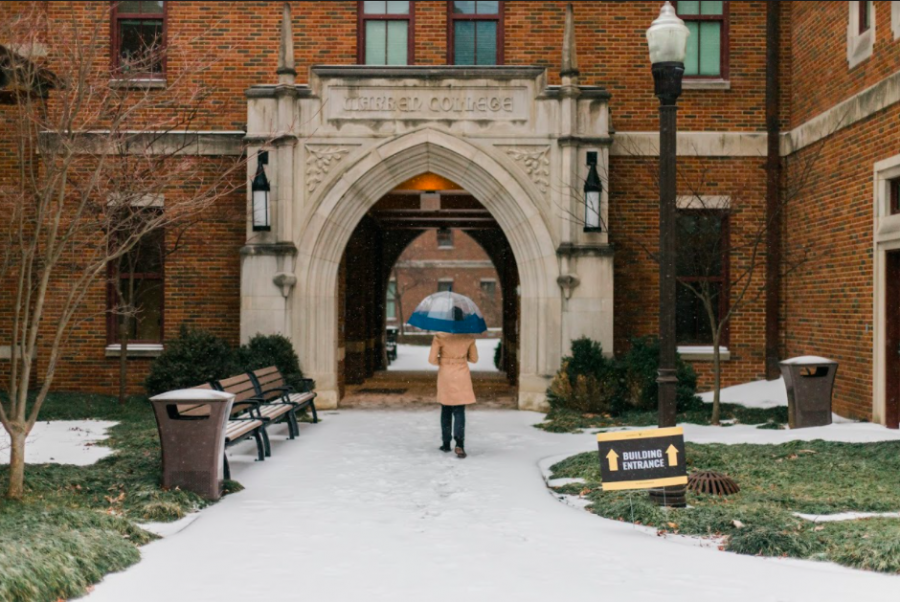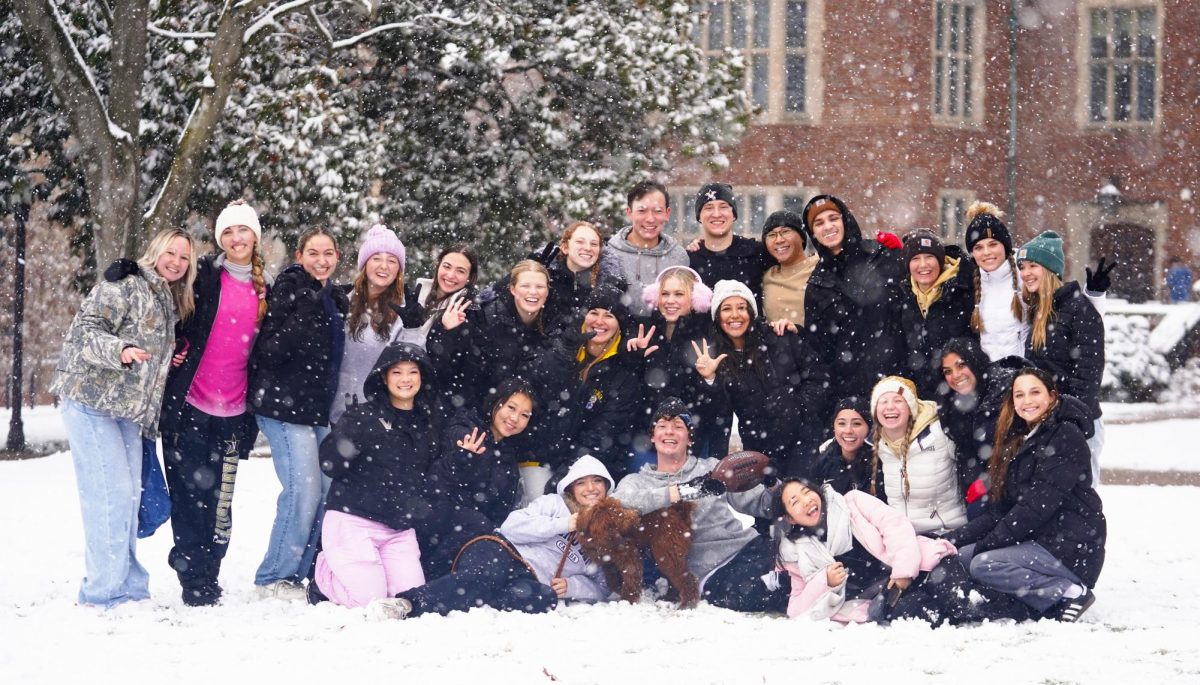I miss snow days.
The night before a snowstorm, my sister and I would wear our pajamas inside out, flush ice cubes down the toilet and listen to the local news late into the night, hoping to hear our county’s closures announced. We would peek out of our windows all night, hoping to wake up to a neighborhood coated in a fluffy white blanket.
In the morning, our parents would help us pull on snow pants and snow boots and dig our plastic sleds out of the garage. After hours of sledding in the local reservoir, we would beg for carrots and buttons to build snowmen. Returning home hours later with a missing mitten, red cheeks and a runny nose, we’d bundle up in our pajamas and drink hot chocolate.
Snow days were the most magical feeling in the world. There was no daily routine to follow, but instead the day was dedicated to simply being a kid. Snow days were a special treat, providing a midweek break from school and life. For many of us, snow days are a part of school culture. In the dark, short days of winter, it’s these days that often give a boost to students—and teachers—as we wait for spring.
On snow days, staff and students used to have an unproductive day at home. Now, thanks to pandemic-driven developments in technology like Zoom and Gradescope, kids no longer have to “waste” a day because of inclement weather. Homework is still due; work is assigned and the backlog can pile up quickly. In many cases, a COVID-19-induced pivot to online learning last spring paved the way for colleges and universities to curtail snow days.
This year, a snowstorm simply indicates a transference from a long day of classes to an even longer day of staring at a blinding computer screen. Online learning has reduced the discontinuities in curriculum that snow days can create. Why waste a day when students can do lessons from their laptops?
However, the question is: What if snow days aren’t a waste?
Snow days provide a necessary reprieve
Snow days are a rare time when everyone—students, faculty and their supervisors—can feel comfortable taking a sudden break. It’s a nice pause button, where we can all just take a moment to breathe and not feel guilty about it. Snow days provided a kind of enforced downtime that is not often present in our lives.
This year, we’ve lost some unexpected free time that in past years might have allowed us to engage in snowball fights on Commons, get some extra sleep or relaxation or catch up on some reading. As well-intentioned as replacing snow days with virtual learning is, our schools may be underestimating the value of this day off from school. Most educators, and all students, can speak to the value of that unscheduled day away from classrooms.
Vanderbilt students are struggling with basic needs
In addition to the reprieve that snow days provide, snow days also allow students to look after their basic needs without worrying about attending classes. It has been difficult for many Vanderbilt students to brave the temperatures and cross campus to wait in long lines at Commons or Rand. Students are running low on food options, and many were unprepared for the impact of the snow and didn’t stock up beforehand.
“Did anyone eat today?” A Vanderbilt student tweeted Monday. The responses overwhelmingly revealed that students had been struggling to get enough meals:
“Not really. I only had two pop tarts,” “Barely,” “Nope,” “I had nutter butters, does that count?” “No.”
Although closing utilities across campus is necessary to protect workers and student safety, Vanderbilt students online overwhelmingly expressed frustration that the university did not plan ahead for inclement weather and alert students to potential closures with enough time to buy extra food. Local staples for the student population—Kroger, Hillsboro Restaurants and Vanderbilt’s many dining halls—have closed or reduced hours.
Students with accessibility issues face difficulty even leaving their dorm rooms due to unshoveled and unsalted pathways. Fears over long lines and COVID-19 transmission have kept more students away from the dining halls and struggling to find food in their dorms. With routine testing closed for the winter weather, worries over getting sick make it harder to leave our safe havens.
One Vanderbilt student on Twitter expressed anger with Vanderbilt administration’s response, claiming that the university knew about the potential for poor weather last week and could have prepared food for every student on campus, told professors that classes would be virtual, and made keeping undergraduates warm and fed a priority.
“How can we be expected to concentrate on classes when most people I know are struggling to get food?” another student lamented in a Reddit Post, adding “At the very least, they should’ve cancelled all in-person classes rather than leaving it up to individual professors.”
Snow days provide unexpected joy and normalcy
Sure, it’s important to make up for the lost learning, but for the future when we make decisions about whether or not snow days are still necessary it’s always important to remember the fun memories almost every kid has from a good snow day. No matter what kind of learning we’re doing this year, the magic of snow days isn’t something that needs to be taken away from students who have already lost so much this year.
It can feel like the COVID-19 pandemic has stripped all the fun from everything, especially school. For kids (and college students who are kids at heart) a snow day means a day to rest and a day to have fun… not worrying about schoolwork, much less logging onto Zoom. Sometimes unexpected joys come at much needed times to break us free from our cycle of stress and enjoy the simple pleasures.
In a school year dominated by bad news, we all need a little magic.









